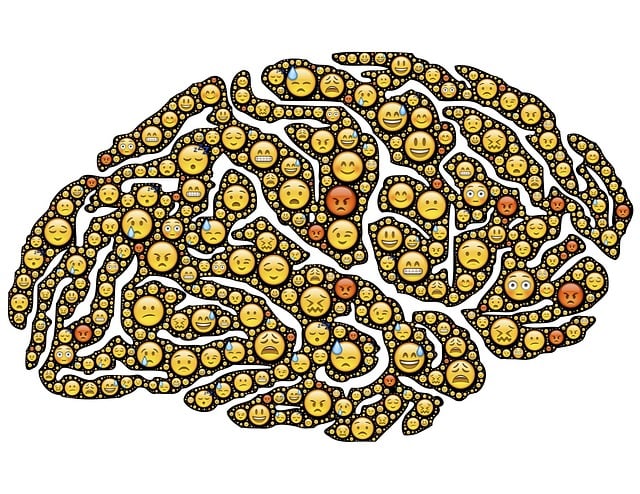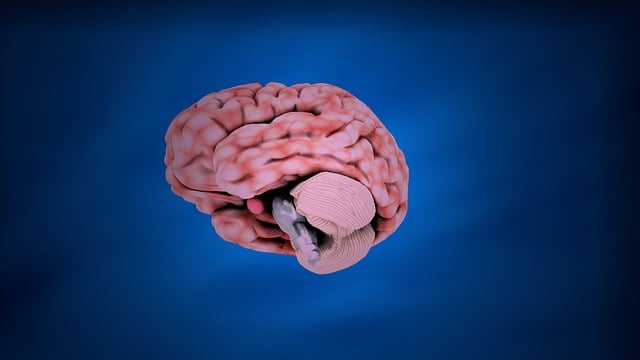Lone Tree Pain Management Therapy emphasizes the critical role of crisis intervention in mental health support, particularly for individuals with chronic pain or acute crises. This holistic approach combines active listening, empathy, compassion, evidence-based techniques like cognitive-behavioral therapy and mindfulness, and policy advocacy to stabilize clients, promote resilience, and foster long-term recovery. By tailoring interventions to individual needs and addressing emotional and psychological challenges, Lone Tree's crisis management strategies enhance overall well-being, ensuring not just survival but thriving among those facing distress.
In the face of crises, effective intervention strategies are paramount. This article offers a comprehensive guide through the intricate landscape of crisis intervention, highlighting key components such as identifying distress signals and implementing tailored techniques, including Lone Tree Pain Management Therapy. We explore the crucial role of mental health professionals in navigating turbulent situations, emphasizing the importance of adaptability for optimal results. By delving into these strategies, we aim to equip readers with valuable insights to better manage and support individuals during crises.
- Understanding Crisis Intervention: A Brief Overview
- Identifying the Need for Lone Tree Pain Management Therapy
- Key Components of Effective Crisis Intervention Strategies
- The Role of Mental Health Professionals in Crisis Situations
- Implementing and Adapting Intervention Techniques for Optimal Results
Understanding Crisis Intervention: A Brief Overview

Crisis intervention is a critical aspect of mental health support, designed to provide immediate assistance during times of acute distress. It involves a structured approach to help individuals navigate and overcome seemingly insurmountable challenges, such as those they might experience with Lone Tree Pain Management Therapy. The primary goal is to stabilize the person, ensure their safety, and offer guidance towards long-term recovery.
Effective crisis intervention strategies often include empathy building techniques, which foster a supportive environment. Healthcare professionals use active listening and non-judgmental attitudes to enhance emotional regulation, enabling individuals to process their feelings constructively. Additionally, promoting coping skills development is vital; teaching practical tools helps people manage future crises and promotes overall well-being. These strategies aim to empower individuals to regain control and move forward with resilience, even in the face of challenging circumstances.
Identifying the Need for Lone Tree Pain Management Therapy

In many cases, individuals experiencing chronic pain or acute crises may find themselves isolated, feeling like a lone tree in a storm. This is where Lone Tree Pain Management Therapy steps in as a vital tool for crisis intervention. Identifying the need for such therapy often arises from a growing recognition of the profound impact that pain can have on one’s emotional well-being and mental health. The intricate link between physical discomfort and psychological states cannot be understated, especially when left unaddressed, it can lead to escalating issues in daily functioning and overall quality of life.
Promoting emotional well-being through Lone Tree Pain Management Therapy involves a multi-faceted approach, incorporating techniques for stress management and mental health awareness. By targeting both the physical and psychological aspects of pain, this therapy offers a holistic solution, helping individuals navigate their journey towards healing and recovery in a supportive environment. It’s not just about managing symptoms; it’s about empowering people to regain control and fostering resilience in the face of pain-related challenges.
Key Components of Effective Crisis Intervention Strategies

Effective crisis intervention strategies are multifaceted and rely on several key components to provide immediate relief and long-term support. Firstly, Lone Tree Pain Management Therapy emphasizes the importance of active listening and empathy. Trained professionals must cultivate compassion and understanding towards individuals in distress, ensuring they feel heard and validated. This foundation of compassion cultivation practices enables a deeper connection and facilitates open communication.
Additionally, integrating evidence-based techniques such as cognitive-behavioral therapy and mindfulness exercises can significantly enhance the intervention’s impact. Mental Health Policy Analysis and Advocacy plays a crucial role in identifying systemic issues contributing to crises and advocating for policy changes that promote better access to care and support services. By combining these approaches, including Mind Over Matter Principles that encourage resilience and self-management, crisis intervention strategies become more holistic and effective in addressing the complex needs of individuals facing critical situations.
The Role of Mental Health Professionals in Crisis Situations

In crisis situations, mental health professionals play a pivotal role, acting as guiding lights for individuals navigating turbulent emotions and challenging circumstances. Their expertise lies in providing immediate support, assessing the individual’s needs, and offering evidence-based interventions to de-escalate acute distress. These professionals, such as therapists from Lone Tree Pain Management Therapy, are equipped with the knowledge and skills to handle a range of crises, from substance abuse and suicidal ideation to post-traumatic stress disorders.
By employing techniques like emotional regulation strategies, confidence boosting exercises, and tailored mental wellness coaching programs, they help clients develop coping mechanisms that promote resilience. The goal is not just to address the immediate crisis but also to empower individuals with long-lasting tools for managing future challenges. This holistic approach ensures that clients not only survive but thrive, fostering a sense of stability and improved mental wellness.
Implementing and Adapting Intervention Techniques for Optimal Results

Implementing crisis intervention strategies requires a nuanced approach that adapts to individual needs and situational factors. Lone Tree Pain Management Therapy emphasizes the importance of personalized care, ensuring techniques are tailored to address specific emotional and psychological challenges. By considering the unique context of each person in distress, practitioners can offer more effective support. This adaptive method goes beyond standardized protocols, recognizing that every crisis is distinct.
Mental Health Awareness and understanding emotional regulation play a pivotal role in successful interventions. The ability to recognize signs of mental health struggles enables prompt action and appropriate resource allocation. Advocacy for Mental Health Policy Analysis ensures systems are in place to support both immediate aid and long-term recovery. These strategies, combined with Lone Tree Pain Management Therapy’s adaptive approach, foster holistic crisis management, promoting better outcomes and enhanced well-being.
Crisis intervention strategies, as highlighted in this article, are invaluable tools for addressing acute distress. From understanding the foundational concepts to adapting techniques for optimal results, each component plays a crucial role in providing effective support. As mental health professionals, recognizing the need for innovative approaches like Lone Tree Pain Management Therapy is essential to navigate complex crisis situations. By integrating these strategies and continually refining our practices, we can enhance our ability to assist individuals in finding solace and rebuilding resilience during challenging times.














